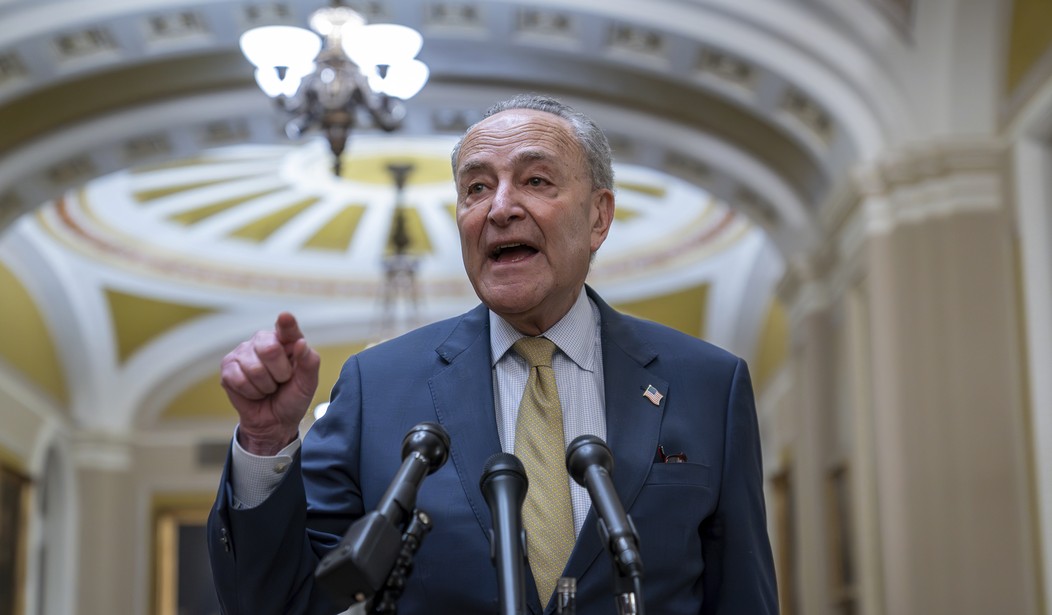Lawmakers in Washington are facing a tight deadline to pass funding bills in order to avert a partial shutdown starting Friday. If this story sounds familiar, it should.
Twice previously, last November and this January, lawmakers were able to put their heads together in order to pass temporary funding measures that failed to fully fund the U.S. government for the fiscal year. Now, months into the current one, there's not much hope that some grand agreement will be reached to prevent a chunk of the federal government from shutting down on March 1 and March 8.
This Friday, without congressional action of some kind, federal agencies such as the Departments of Agriculture, Energy, Veterans Affairs, and Transportation will run out of funding, along with HUD and the FDA. Funding these entities was considered easier — though reality is suggesting otherwise — raising questions about the likelihood of an agreement on the more fraught debates surrounding funding for the Department of Defense, DOJ, and Department of Homeland Security.
Leaders in the House and Senate had suggested last week that text for bill(s) to fund the first portion of the government would be released on Sunday ahead of lawmakers' return to Washington this week — but no such text was released.
The main issues are key funding priority disagreements between tax-and-spend Democrats led by Majority Leader Chuck Schumer (D-NY) in the Senate and conservatives led by Speaker Mike Johnson (R-LA) in the House. As usual, Schumer is smearing Republicans as "extreme" — including in a fiery letter sent over the weekend — for seeking to cut woke or expensive programs to fund border security, law and order, and other GOP priorities.
Recommended
Across the aisle in the other wing of the Capitol, Johnson says Schumer has been dropping new Democrat priorities into funding plans that weren't previously discussed in earlier failed spending talks. "Leader Schumer’s letter fails to mention that many of the points still being debated come from new Democrat demands that were not previously included in the Senate bills," Johnson said in a post on X. "At a time of divided government, Senate Democrats are attempting at this late stage to spend on priorities that are farther left than what their chamber agreed upon."
Despite the counterproductive rhetoric in Leader Schumer’s letter, the House has worked nonstop, and is continuing to work in good faith, to reach agreement with the Senate on compromise government funding bills in advance of the deadlines.⁰⁰Our position is that of the American… https://t.co/mZ0PFVN9oc
— Speaker Mike Johnson (@SpeakerJohnson) February 26, 2024
Johnson is also dealt a tough hand due to his fellow House Republicans' willingness to use procedural tools to block or tank votes, plus threats to plunge the House into chaos again by alluding to another motion to vacate that paralyzed the House when Rep. Matt Gaetz (R-FL) used such a ploy to strip Kevin McCarthy (R-CA) of the gavel.
Without bill text yet or seemingly even a fragile agreement on what the text should include, pressure is on as the Senate returns to D.C. on Monday, followed by House lawmakers slated to return to Washington on Wednesday. That leaves very little time for an agreement to be reached and, if one is, for legislators to speed the bills through the required processes to get them voted on.
There's a chance that the only feasible way to avert a shutdown is yet another stopgap funding bill that would kick the can down the road again until the same debates occur ahead of the next deadline that would be even closer to November's elections — a timeline not previously shown to allow level heads and bipartisanship to prevail. Speaker Johnson has also reportedly said that a partial shutdown might be unavoidable and worth it to make a stand for GOP funding priorities.
In addition to this Friday's deadline and the specter of another deadline if a continuing resolution is used to avoid a partial or complete shutdown in March, there's yet another deadline ahead on April 30. That's the date when, if full funding bills haven't been passed by Congress, "tens of billions of dollars of automatic cuts to defense and nondefense programs" will kick in.
This legislative-budgetary brouhaha comes as President Joe Biden still struggles to get a supplemental aid package approved to provide more support for Ukraine. To that end, and despite rebuffing calls to meet with Speaker Johnson previously, Biden has invited the Speaker, along with Schumer, House Minority Leader Hakeem Jeffries (D-NY), and Senate GOP Leader Mitch McConnell (R-KY) to the White House for a meeting on Tuesday.

























Join the conversation as a VIP Member